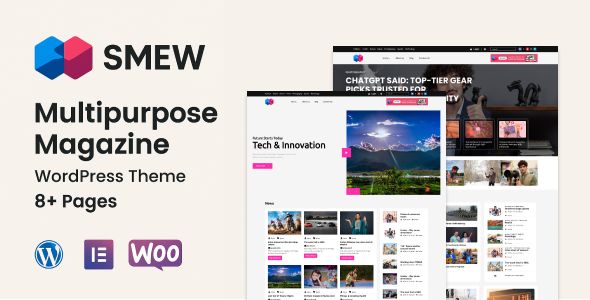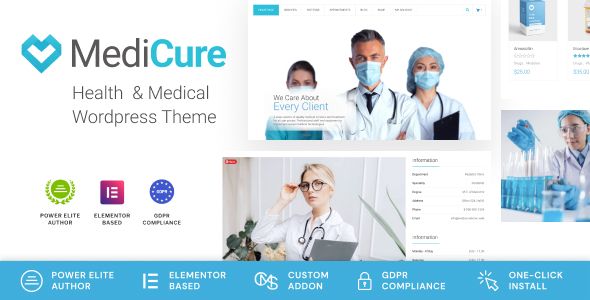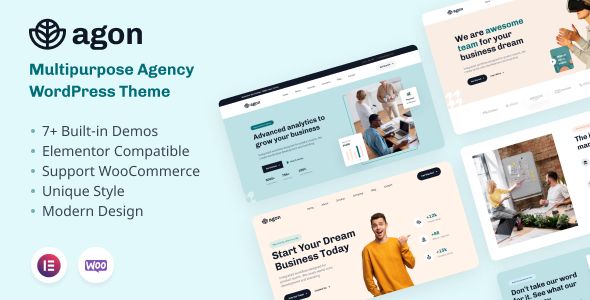Choose Your Desired Option(s)
×
- Description
- Reviews (3)
- FAQ

Mindy – Therapy & Counseling WordPress Theme
Start with the advantage that actually changes how you build and scale
This release of Mindy – Therapy & Counseling WordPress Theme removes the roadblocks that usually slow down clinics and solo practitioners going online. In practical terms, you can install it on unlimited sites—your main practice, associate microsites, group programs, retreats, regional locations, and staging copies—while keeping the complete professional feature set intact. It’s a one-time purchase with update parity so you remain aligned with ongoing design and compatibility improvements. No domain locks, no activation nagging, no counting seats. For agencies supporting multiple practices and for clinics with several locations, that freedom translates into faster launches, simpler budgets, and a consistent design system across every property.
You still get the polished layouts, appointment-friendly flows, therapist profiles, program pages, and resource templates people expect from a premium healthcare theme—only now you can replicate them wherever you need without licensing friction.
✅ Product Description
Mindy – Therapy & Counseling WordPress Theme is designed for real mental-health workflows: discovery → trust → practical fit → booking. The visual language is calm and reassuring—soft color tokens, generous spacing, friendly yet professional type, and image treatments that prioritize humanity over stock-photo clichés. Under the aesthetics sits a set of purpose-built structures tuned for private practices, group clinics, counseling centers, and wellness teams:
-
Service pages that explain modalities and concerns in plain language.
-
Therapist profiles that quickly communicate competence and fit (approach, specialties, languages, availability).
-
Location pages that answer logistics in seconds (parking, accessibility, hours, telehealth options).
-
Appointment and inquiry flows that feel short, safe, and private.
-
Programs & groups (e.g., anxiety skills, couples workshops, grief support) with schedules and prerequisites.
-
Resources/Blog for patient education that naturally point to relevant services—without making grand promises.
The homepage of Mindy – Therapy & Counseling WordPress Theme leads with clarity, not hype. A simple headline sets expectations (“Evidence-informed therapy that meets you where you are”) followed by a compact trust strip—licensed clinicians, confidential care, accessible facility, telehealth available. Below, modular sections present featured services (Individual Therapy, Couples, Family, Teens, Anxiety/Depression, Trauma-informed care), therapist spotlights, outcomes framed ethically (“skills for managing anxiety,” “tools for communication”), testimonials with context, fees/insurance notes, and a persistent Book an Appointment.
Every section is designed to be edited by non-developers. Drag to reorder, duplicate for a new program, or hide when not needed. The theme’s grid keeps everything aligned, and the typography scale ensures long pages stay readable.
✅ Key Features (built around clinical realities)
1) Care-path information architecture
Mindy – Therapy & Counseling WordPress Theme routes visitors through a clear path: concerns → service detail → therapist fit → booking. The architecture supports scanning (for busy people) and deeper reading (for careful decision-makers).
2) Therapist profiles that build trust, not hype
Cards surface degree/licensure, specialties (e.g., CBT for anxiety, EMDR for trauma, couples work), modalities, languages, and availability. Profile pages expand with a short bio, approach statement, populations served, and a gentle, visible Book with [Name].
3) Logistics clarity that reduces phone tags
Location pages show address, parking, transit, accessibility, hours, and telehealth availability. Microcopy suggests what to bring to the first session without collecting sensitive details online.
4) Booking & inquiry flows that feel safe
Short forms with clear labels and purpose text; optional “Request a Call Back” for those reluctant to book outright. Inline validation, privacy-aware hints, and accessible keyboard flow are all standard.
5) Service templates for real practices
Pages for individual therapy, couples/family, teen counseling, anxiety/depression support, trauma-informed care, grief, OCD, ADHD, substance use counseling (with appropriate disclaimers), career counseling, and psych-education. Each page balances education with boundaries.
6) Programs & group offerings
Timetables for groups or classes with spaces remaining, facilitator profiles, prerequisites (“initial consult required”), and a Reserve a Spot or Book an Intake button.
7) Reviews & testimonials with context
Social proof appears where it helps decisions. Quotes stay respectful—no clinical claims or miracle language. Context tags such as “couples communication” or “teen anxiety skills” keep testimonials relevant.
8) Pricing & payment transparency
Optional fee tables for initial/standard sessions, sliding scale notes, insurance statements (OON vs. in-network), and payment methods. All phrased clearly to reduce inquiry friction.
9) Resources for patient education
Readable article templates, downloadable checklists (e.g., “Preparing for your first session”), and clinic updates. Related links connect back to services and therapist profiles naturally.
10) Performance-aware, accessible templates
Lean CSS, responsive images, lazy-loading galleries, and stable DOM patterns help meet Core Web Vitals. Keyboard navigation, visible focus states, and contrast-safe color tokens come standard.
11) Update parity over time
Keep pace with template refinements and compatibility updates—no fork drift to maintain. Your component library stays modern.
12) Unlimited sites, consistent design system
Clone a reference build for every associate or location. Editors learn once, then move faster everywhere.
Who Mindy – Therapy & Counseling WordPress Theme is for
-
Solo practitioners who need an honest, appointment-ready site with strong therapist fit cues.
-
Group practices & clinics coordinating multiple specialties and locations under one brand.
-
Counseling centers offering programs, groups, and psycho-education alongside 1:1 care.
-
Specialty practices (e.g., trauma-informed, perinatal mental health, LGBTQ+-affirming care) that require sensitive copy and private inquiry routes.
-
University or school counseling programs with constrained budgets and strict accessibility needs.
-
Agencies serving multiple clinics who want a reusable component library across unlimited installs.
Real-world usage scenarios
-
Telehealth-first practice
Homepage foregrounds secure remote sessions, state licensure coverage, and time-zone clarity. Service pages distinguish telehealth-appropriate concerns from those requiring in-person care. Booking form lets visitors pick telehealth vs. office. -
Group practice with specialties
Use the service matrix to connect concerns (anxiety, OCD, trauma, relationships) with modalities (CBT, ACT, EMDR, EFT). Therapist profile filters by specialty and language. Location pages clarify parking and transit. -
Teen & family focus
Create a landing page with school-friendly hours, caregiver involvement expectations, and confidentiality basics. Articles cover conversation starters and “what to expect” for teens. Intake form asks for preferred communication method (caregiver vs. teen) without probing for sensitive details. -
Trauma-informed clinic
Service pages use non-triggering language and emphasize choice and pacing. A private inquiry route (“Request a confidential consult”) appears near the top. Program pages outline stabilization → processing → integration in broad, respectful terms. -
Workshops & groups
Timetables show session dates, remaining spots, and prerequisites. Cards carry brief goals (“skills for panic,” “communication for couples”) with facilitators’ bios. CTA: Reserve a Spot or Book Intake. -
Multi-location network
Clone the reference site for each location. Localize addresses, hours, photos, and practitioner rosters. Because you can install on unlimited sites, previews for stakeholders don’t require juggling activations.
Design language & UX notes
-
Calm palette: neutrals with a single accent; avoids harsh contrasts.
-
Readable type: approachable headings, comfortable line length, ample spacing to reduce cognitive load.
-
Photography guidance: prefer authentic practice photos (waiting room, therapy rooms, outdoor portraits) over generic “forced-smile” stock.
-
CTA persistence: Book remains visible as visitors scroll; Call sits beside it for those who prefer the phone.
-
Evidence near action: testimonials, fee summaries, and access notes appear close to forms rather than buried below the fold.
-
Motion with manners: gentle transitions; honors reduced-motion preferences automatically.
Setup & Customization (fast, repeatable)
-
Install & activate Mindy – Therapy & Counseling WordPress Theme—no per-domain activation, no license key steps.
-
Optional demo import for Home, Services, Therapists, Locations, Programs, Pricing, Blog, and Contact.
-
Brand pass: set color tokens (primary, accent, neutrals), choose type pairing, adjust corner radii and button styles, decide header behavior (sticky/transparent).
-
Information architecture: define your services (e.g., Individual, Couples, Teens, Trauma-informed, Telehealth).
-
Therapist profiles: add licensure, degrees, specialties, modalities, languages, and a short philosophy of care.
-
Locations: publish address, directions, parking, accessibility, hours, and telehealth notes.
-
Booking integration: place your scheduling widget or an intake form. Keep forms short; set expectation copy (“We’ll respond within 1 business day”).
-
Policies: write clear, kind microcopy for cancellations, telehealth boundaries, and privacy basics.
-
Performance pass: compress hero images, confirm lazy-loading, test LCP/CLS on mid-range mobiles.
-
Accessibility pass: verify contrast, keyboard flow, and that labels/instructions appear for assistive tech.
-
QA: walk a first-time visitor path—Home → Service → Therapist → Book—on phone and desktop. Trim anything that adds friction.
Because you aren’t fighting activation screens, you can keep a full staging site for experiments (copy tweaks, layout tests, new programs) and roll successful changes live in minutes—across one site or many.
Content strategy for patient trust (ethical, plain-English)
-
Name the concern; teach the next step. A service page for anxiety can define common patterns and describe first-session goals (assessment, plan, initial skills) without implying guaranteed outcomes.
-
Explain the approach without jargon. “We use strategies from CBT and mindfulness to help you notice patterns and practice alternatives” beats tool names without context.
-
Fit first, not force. Encourage prospective clients to read therapist blurbs and choose a good match. Emphasize that it’s okay to switch if the fit isn’t right.
-
Set gentle expectations. Session count ranges, pacing, and collaboration language (“we’ll decide together”).
-
Privacy basics in normal words. What you collect on forms and why; suggest avoiding sensitive details in open text online.
-
Boundaries & crisis posture. Clarify that your site isn’t for emergencies; provide a short, non-linked note to contact local emergency services or appropriate hotlines. (On your actual site, place your own practice-specific crisis info where policy allows.)
Internal linking that mirrors how people decide:
Service pages → relevant therapist profiles → booking; therapist profiles → their services and program sessions; resources → services and booking; location pages → therapists who practice there.
SEO & structure
Mindy – Therapy & Counseling WordPress Theme respects semantic HTML so search engines—and humans—can parse your site easily:
-
Proper heading hierarchy (H1 → H2 → H3) and list semantics.
-
Breadcrumbs for deeper sections like Programs or multi-location sites.
-
Clean URLs, readable excerpts, and schema-friendly article structures via your SEO plugin.
-
Internal link patterns among services, therapists, and resources to build topic clusters.
A practical publishing cadence:
-
One service explainer per month (e.g., “What to Expect in Couples Therapy”).
-
One resource per month (e.g., “Preparing for Your First Session,” “Gentle Grounding Exercise”—described as education, not treatment).
-
Quarterly program launch/recap posts.
-
Periodic clinic updates (hours, new therapists, new location) so the site feels current.
Performance & accessibility
-
Responsive images with
srcsetand lazy-loaded galleries keep payloads reasonable on mobile. -
Stable layout patterns prevent content shift as assets load.
-
Keyboard-navigable menus, tabs, and forms; visible focus rings throughout.
-
Reduced-motion honored to protect visitors who prefer calm interfaces.
-
Cache/optimization compatibility ensures Core Web Vitals remain healthy during traffic spikes (e.g., press mentions or referral campaigns).
Compliance-friendly copy practices (non-legal guidance)
This theme focuses on presentation and user experience, not medical advice. Keep site copy informative and conservative:
-
Avoid guarantees and absolute claims; frame outcomes as goals and expectations.
-
Use disclaimers to clarify that website content is general information and not a substitute for professional diagnosis or treatment.
-
Refrain from collecting sensitive health information on public pages or long free-text fields; encourage scheduling a session for clinical discussions.
-
Keep testimonials respectful and non-specific; avoid revealing identifiable health details.
-
If you publish crisis information, ensure wording aligns with your local regulations and practice policies.
(Consult your own legal and regulatory advisors; Mindy – Therapy & Counseling WordPress Theme provides structures, not compliance determinations.)
Operations & growth
-
Quarterly homepage refresh: rotate featured services seasonally (exam stress, holiday coping, back-to-school transitions).
-
Roster hygiene: update therapist profiles promptly (specialties, certifications, new availability).
-
Form analytics: identify drop-off fields; simplify or split into steps if needed.
-
Program timetables: keep sessions current; let users join a waitlist if your systems support it.
-
Photography updates: prefer authentic space/people shots; update when rooms change or a new location opens.
-
Telehealth messaging: confirm time-zone and coverage language remains accurate.
Why teams choose this freedom-first release of Mindy
-
Unlimited sites let you separate flagship, associate microsites, groups/programs, and regional locations without admin overhead.
-
One-time cost supports sustainable budgets for small practices and multi-location clinics alike.
-
Full professional feature set keeps the polished layouts and flows patients expect.
-
Update parity means you benefit from ongoing refinements without maintaining forks.
-
Consistent training: editors learn one component library and move faster across every property.
-
Staging freedom: experiment safely and clone wins to production—no re-licensing chores.
Frequently Asked Questions (FAQ)
Q1: What exactly do I receive with Mindy – Therapy & Counseling WordPress Theme in this package?
You receive the full professional theme—homepage sections, service templates, therapist profiles, location pages, program/timetable layouts, pricing/FAQ pages, resources/blog, and styled booking/inquiry areas—usable on unlimited sites and environments.
Q2: Do I need an activation key to import demos or unlock features?
No. Installation is straightforward. You can optionally import demo content and begin customizing immediately—no per-domain activation.
Q3: Is the experience on par with the original feature set?
Yes. The goal is feature parity with ongoing template and compatibility improvements so your website stays current over time.
Q4: Can I deploy separate sites for associates or sub-brands?
Absolutely. Clone your base build, adjust palette and copy, personalize therapist bios, and launch—unlimited installations are part of the advantage.
Q5: How does the theme handle performance on mobile for time-pressed visitors?
Lean templates, responsive media, and lazy loading keep pages quick. With basic optimization (compression, caching), Core Web Vitals remain healthy.
Q6: Does it support programs, groups, or classes?
Yes. Timetable blocks list sessions with availability, facilitator bios, and prerequisites. CTAs route to Reserve or Book Intake.
Q7: Can I present fees and insurance information clearly?
Yes. Use the pricing templates to explain session types, sliding scale policies, accepted payment methods, and insurance notes in plain language.
Q8: Are the forms appropriate for mental-health contexts?
Forms are intentionally short and privacy-aware. Use them for scheduling and general queries; avoid collecting sensitive clinical details online.
Q9: Can I emphasize telehealth or multi-location care?
Yes. Create landing pages for telehealth and separate location pages. You can filter therapist profiles by location and telehealth availability.
Q10: Is it possible to run a confidential inquiry route for sensitive topics?
Yes. Provide a simplified Request a Call Back beside Book Now. Microcopy sets expectations about privacy and next steps.
Q11: Does Mindy support multiple languages or regional content?
It does. Templates and strings are localization-friendly; multi-site setups can share the same component library while localizing copy and hours.
Q12: Will frequent schedule or roster changes break the design?
No. Cards and lists adapt gracefully; editors can add or remove items without layout surprises.
Q13: How do updates work here?
You maintain update parity. Test updates on staging, then deploy to production—no relicensing steps between environments.
Q14: Is there any limit on staging, preview, or client demo sites?
No. You can spin up as many as you need. Unlimited usage is built into this release.
Closing Note
Choosing a therapist or counseling service is an act of trust. A website should lower anxiety, answer practical questions, and make the next step obvious—without noise or pressure. Mindy – Therapy & Counseling WordPress Theme delivers that balance: clear service pages, human therapist profiles, safe and short booking flows, and gentle education that respects boundaries. Pair those strengths with practical freedoms—unlimited site usage, a one-time cost, and update parity—and you have a dependable digital foundation for solo practitioners, group practices, and counseling centers alike. It’s the professional experience people deserve when they’re ready to reach out for help—minus the licensing friction that slows teams down.
Share Your Valuable Opinions Cancel Reply
Q: Do I need a license key?
A: No. All products are Pre-Activated. You can use 100% of the Premium features immediately.
Q: Can I use the One-Click Demo Import?
A: Yes, absolutely! We ensure the demo import feature works perfectly.
Q: Can I use the products on multiple websites?
A: Absolutely. The GPL license allows use on unlimited domains.
Q: Are the files safe?
A: Yes. All files are scanned by McAfee and VirusTotal before uploading.
- Includes all Pro features
- Unlimited sites · GPL-licensed
- Malware-scanned & safe download
Table of Contents
- Mindy – Therapy & Counseling WordPress Theme
- Start with the advantage that actually changes how you ...
- ✅ Product Description
- ✅ Key Features (built around clinical realities)
- 1) Care-path information architecture
- 2) Therapist profiles that build trust, not hype
- 3) Logistics clarity that reduces phone tags
- 4) Booking & inquiry flows that feel safe
- 5) Service templates for real practices
- 6) Programs & group offerings
- 7) Reviews & testimonials with context
- 8) Pricing & payment transparency
- 9) Resources for patient education
- 10) Performance-aware, accessible templates
- 11) Update parity over time
- 12) Unlimited sites, consistent design system
- Who Mindy – Therapy & Counseling WordPress Theme is...
- Real-world usage scenarios
- Design language & UX notes
- Setup & Customization (fast, repeatable)
- Content strategy for patient trust (ethical, plain-Engl...
- SEO & structure
- Performance & accessibility
- Compliance-friendly copy practices (non-legal guidance)
- Operations & growth
- Why teams choose this freedom-first release of Mindy
- Frequently Asked Questions (FAQ)
- Closing Note















I always worry about nulled plugins, but this GPL version of Mindy – Therapy & Counseling WordPress Theme is clean. No hidden scripts.
Unlike other nulled plugins that crash your site, Mindy – Therapy & Counseling WordPress Theme is stable and optimized for speed.
The documentation for Mindy – Therapy & Counseling WordPress Theme is clear.